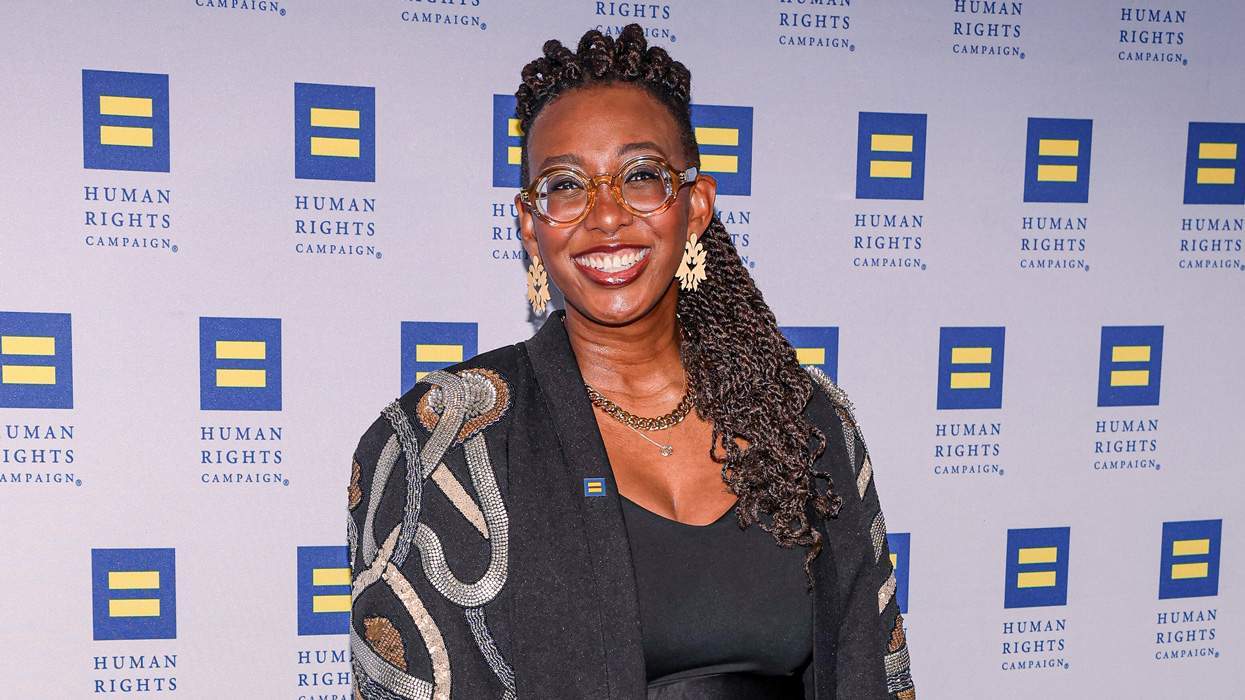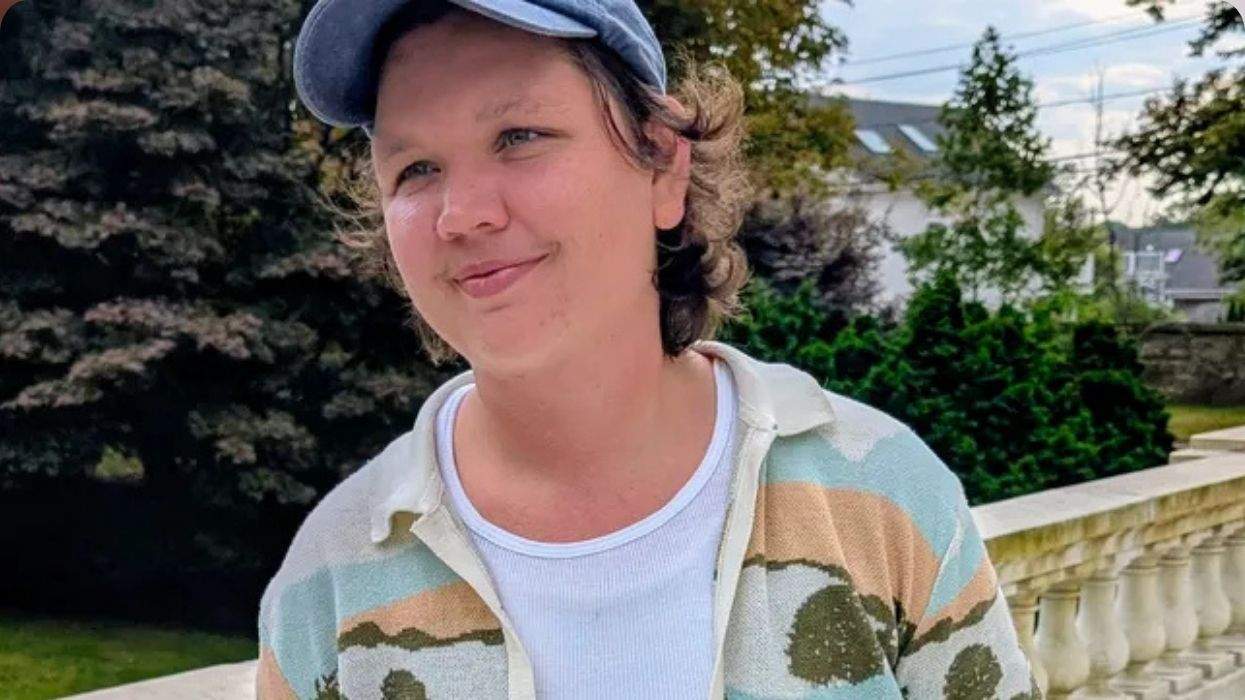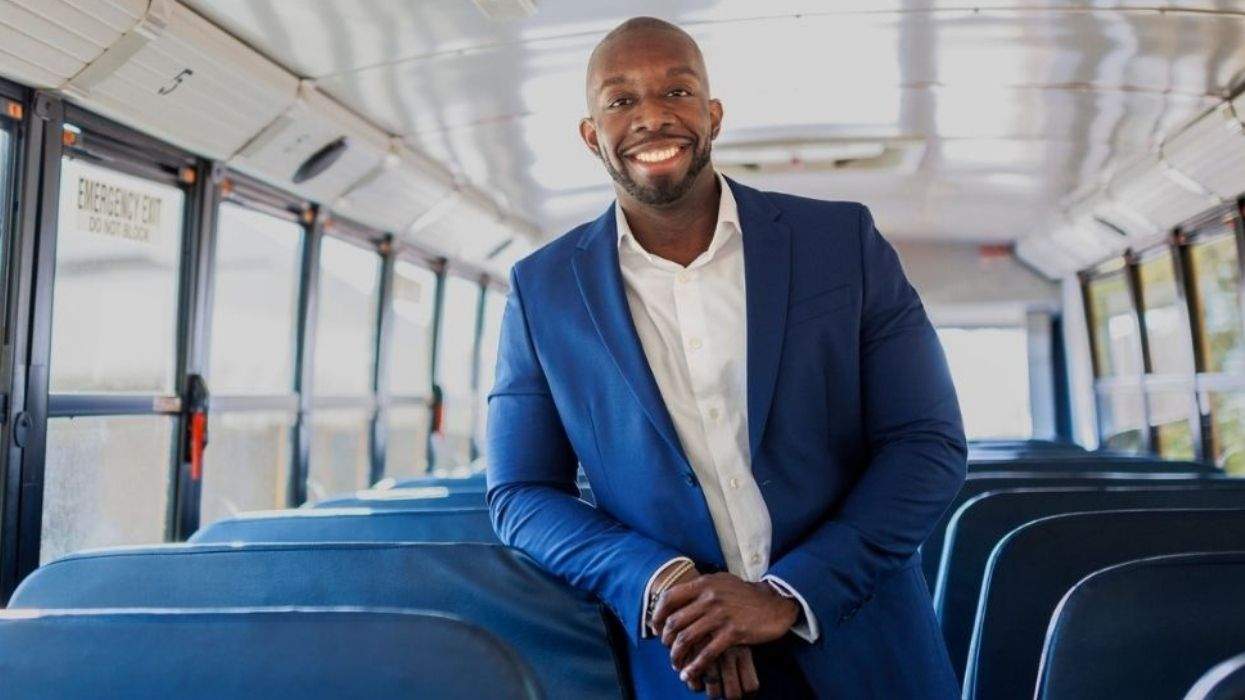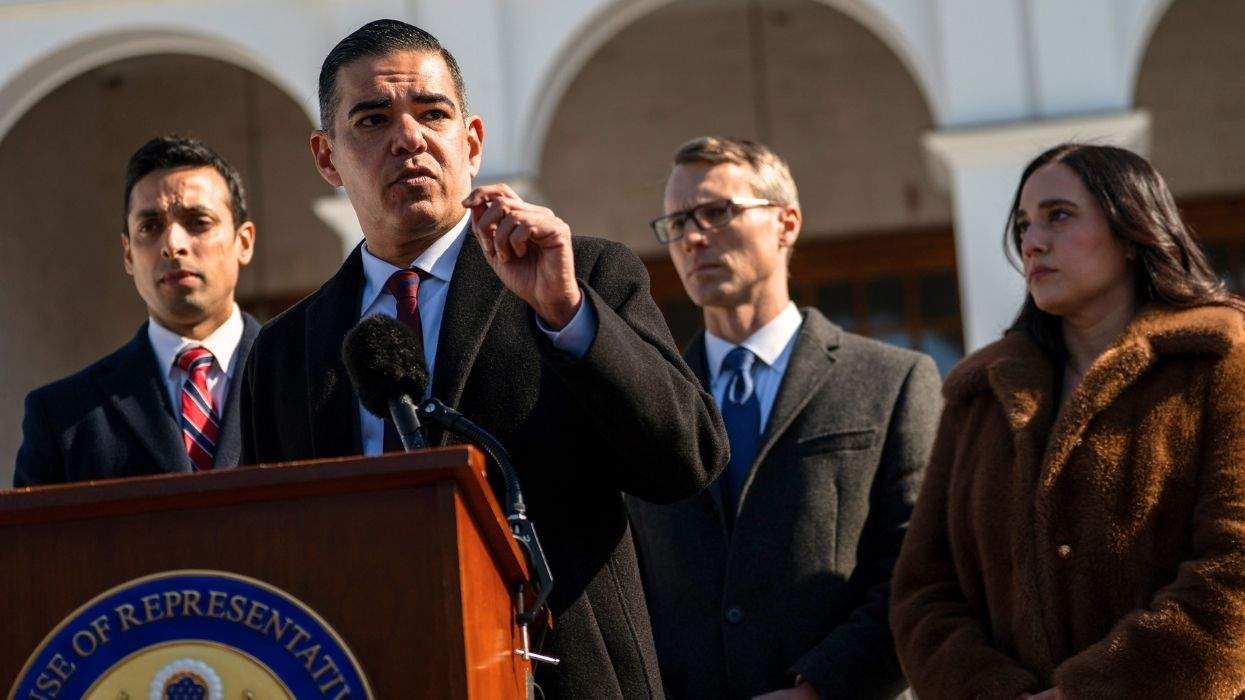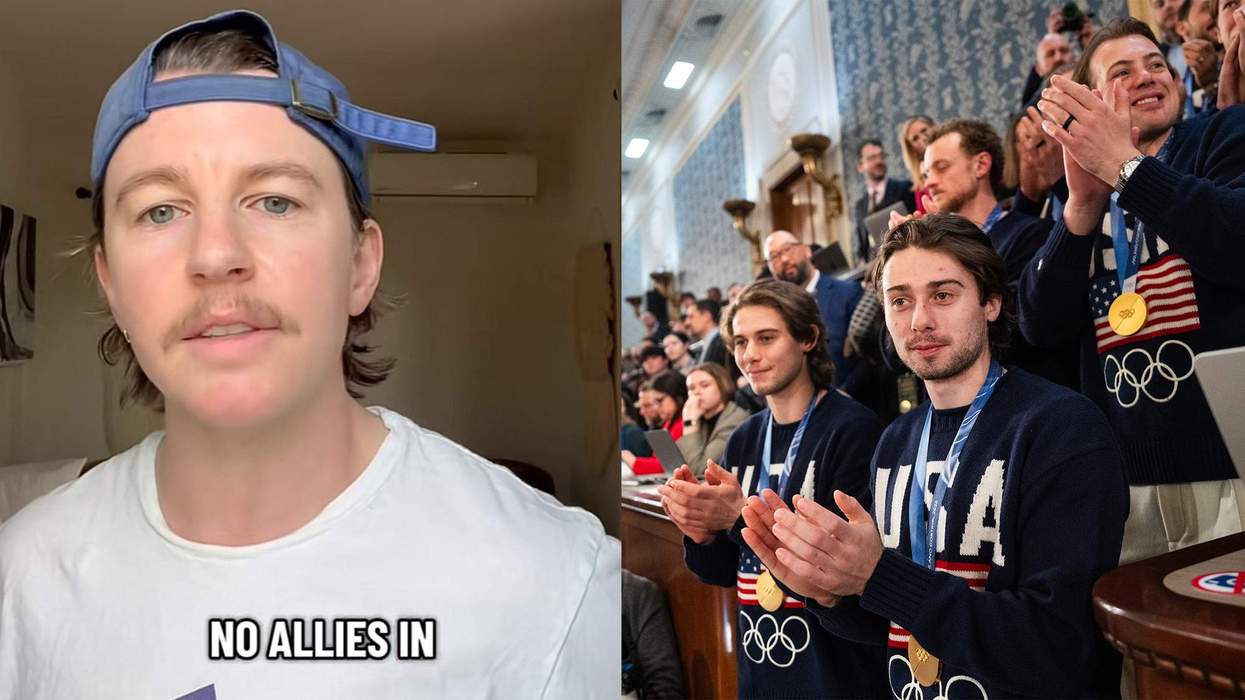When marriage equality legislation passed the New York State Senate in June, crowds rallied outside the historic Stonewall Inn. There, in 1969, transgender bar patrons were among the upstarts who led a rebellion that sparked the modern LGBT rights movement -- all of which led to that night when New York emerged as the most populous state in the nation to allow same-sex marriage. But four decades later, for some of the original Stonewall insurgents, the fight for legal protection from discrimination remains unfinished.
"New York is viewed as a real leader on marriage, but unfortunately, when it comes to transgender equality, New York is really falling behind," says Melissa Goodman, an attorney with the New York Civil Liberties Union. "New York has more transgender citizens than any other state, but we still don't have basic protections for transgender New Yorkers."
Buoyed by a remarkable victory, advocates in New York face the unfinished business of passing long-overdue protections against discrimination based on gender identity and expression. Despite seemingly ideal conditions for another win, advocates know better than to take anything for granted.
An estimated 300,000 transgender people live in New York, where half of the 20 million residents live in jurisdictions protected by local transgender civil rights laws, including New York City, Buffalo, Albany, and Suffolk and Westchester counties. No statewide law exists, however, which puts New York behind 15 other states, including Colorado and Nevada -- neither of which has a civil unions law, let alone marriage equality.
"It's policy and it's politics," says Sen. Thomas K. Duane, a gay Democrat from Manhattan and lead sponsor of the Gender Expression Non-Discrimination Act. "It's passed in other places, but New York is different. It tends to be progressive, but I'd have to say, it's renowned for being unique in the way it functions legislatively."
There are less polite ways of describing New York's legislative record. National Journal in Washington named it to a list of "The Six Most Dysfunctional State Governments" when its inability to pass laws reached particular heights in 2009.
The story of GENDA begins in 2002, when the New York State Senate passed the Sexual Orientation Nondiscrimination Act but rejected an amendment to provide protections for transgender people in areas such as employment, housing, and public accommodations. GENDA emerged as stand-alone legislation, but throughout the past decade, the measure has languished while others, including a hate-crimes law, a transgender-inclusive antibullying law, and the marriage equality bill, passed under a Republican-controlled Senate.
Some advocates hope to change that narrative as soon as the 2012 legislation session begins. As was the case with marriage equality legislation until earlier this year, GENDA has passed the state Assembly multiple times with bipartisan support but remains stuck in the Senate, where the example of the successful marriage equality campaign may offer some important lessons.
"If the marriage fight showed anything, it showed that legislators from both parties will come together and do anything when the right case is made," says Michael Silverman, executive director of the Transgender Legal Defense and Education Fund. "It's now up to advocacy groups and individuals in New York State to make the case that GENDA is essential."
The legislative session doesn't start until January, but advocates already have spent months working behind the scenes, including on conversations with the office of Gov. Andrew Cuomo. Their strategy so far includes public education, lobbying lawmakers, and broadening the base of support for GENDA.
"The whole transgender equality movement is really at the intersection of the LGBT equality movement and the gender equality movement," says Goodman. "Those views that fuel discrimination against transgender people are the same type of views that fuel discrimination against LGBT people and women."
Public opinion stands strongly in support of GENDA, with the most recent poll, conducted in 2008 for the Empire State Pride Agenda, showing support from 78% of New York voters, including clear majorities of Democrats, Republicans, and independents across all regions. That percentage exceeds peak support for the marriage equality law, which 58% of voters backed in polls prior to this summer's vote.
From a lobbying standpoint, many advocates interviewed feel confident they are close to reaching or have already secured the 32 votes required to pass the measure in the Senate, where Republicans hold a 32-30 advantage. Every Democrat except the avowedly antigay Ruben Diaz Sr. is believed likely to vote yes on GENDA, and at least a handful of Republicans, including some who did not support the marriage equality bill, are considered open to the prospect.
"More than one said, 'I'm not going to be there on marriage, but this transgender civil rights law sounds very interesting to me. I definitely want to hear more. That sounds like something I could get behind,'" says Ross Levi, executive director of the Pride Agenda, about his group's conversations with Republican senators. The Pride Agenda convened a conference call of LGBT and progressive groups in August that Levi says was marked by "a lot of renewed energy and interest and commitment" for GENDA.
Moving the bill to the floor could pose the most difficult challenge because the full Senate has never voted on the measure. Unlike the marriage equality bill, which failed on its first vote in the Senate two years ago, GENDA has no official scorecard -- a tool that helped gay rights groups target senators who opposed marriage equality and replace them with yes votes.
"Transgender civil rights has support in the Republican conference, but will it have enough energy to move it to the floor? That is the big question," says Melissa Sklarz of the New York Transgender Rights Organization, a lobbying and advocacy group.
The changed political landscape after the marriage equality vote leads some to see an opportunity for GENDA in the near future. Four Republican senators joined 29 Democrats in passing marriage equality after a bipartisan campaign spent almost $3 million, much of it raised from Republican sources.
"There is some political momentum that we can gain from marriage," says Levi. "People have seen the strength of our community. They have seen how LGBT issues resonate with voters, and I think that gives us some momentum."
Some predict longer odds for GENDA in 2012, an election year. They suggest conditions would improve dramatically in 2013, after voters deliver a verdict on the Republican senators who supported marriage equality.
"I actually think that if the four Republicans who voted for marriage equality in June are reelected, that would send a very strong signal to other Republicans in the conference that voting for LGBT rights legislation in the conference is not going to lead to their defeat," says Pauline Park, chair of the New York Association for Gender Rights Advocacy. "If none of the four Republicans who voted for marriage equality is defeated next November, if GENDA has not passed by then, I think that will greatly increase the prospects for passage of GENDA in 2013."
Park continues, "I put it at 50/50 in 2012, compared to 75%-80% in 2013, particularly if Democrats recapture the Senate."
All advocates expressed gratitude for support and involvement from Cuomo, who continued the executive order of his predecessor, Gov. David Paterson, to protect transgender state employees from discrimination. Cuomo's leadership on marriage equality is widely credited with the win in his state. The governor shows signs of a similar commitment to GENDA. As attorney general, Cuomo negotiated a settlement with American Eagle that forced the clothing retailer to change its discriminatory employee dress code. In an interview with The Advocate in July after the marriage equality victory, the governor said GENDA was a "priority."
Senator Duane, who says he has discussed GENDA "numerous times" with the governor and his staff members, says all agree on the measure's importance. The lawmaker says it is "on the front burner" to establish an effort similar to the model that pushed for marriage equality, with the governor in the lead, but the precise structure and timing of such an initiative remain undetermined.
"We have to make sure it's in a place on the governor's agenda that he and we are comfortable with," says Duane. "That's to be determined. I'm always in a hurry. He is someone who likes action, so I believe that he will be very sympathetic to having movement on this as soon as possible."
Whatever blueprint emerges, advocates seem to be under no illusion that it would exceed the fund-raising and attention showered on the marriage equality campaign, which brought together state and national groups including the Human Rights Campaign, Freedom to Marry, and the Log Cabin Republicans. Still, many say a scaled-down version of the effort would be feasible, particularly as it relates to the tight coordination and single-minded focus of the marriage campaign.
"I don't expect that we are going to have the resources that the marriage campaign had," says Silverman, whose organization brought in $100,000 at its annual fund-raiser in May, the most ever raised for transgender rights in a single night. "That said, there are lessons we can learn, there are pages we can take from their playbook, and we should."
As usual, the lessons include what victory in New York could mean for the nation, this time with respect to the Employment Non-Discrimination Act, awaiting movement in Congress.
"Just like the eyes of America watched New York for marriage equality, they watch for transgender civil rights," says Sklarz. "How can you pass ENDA in Washington if we cannot get transgender rights in New York?"

